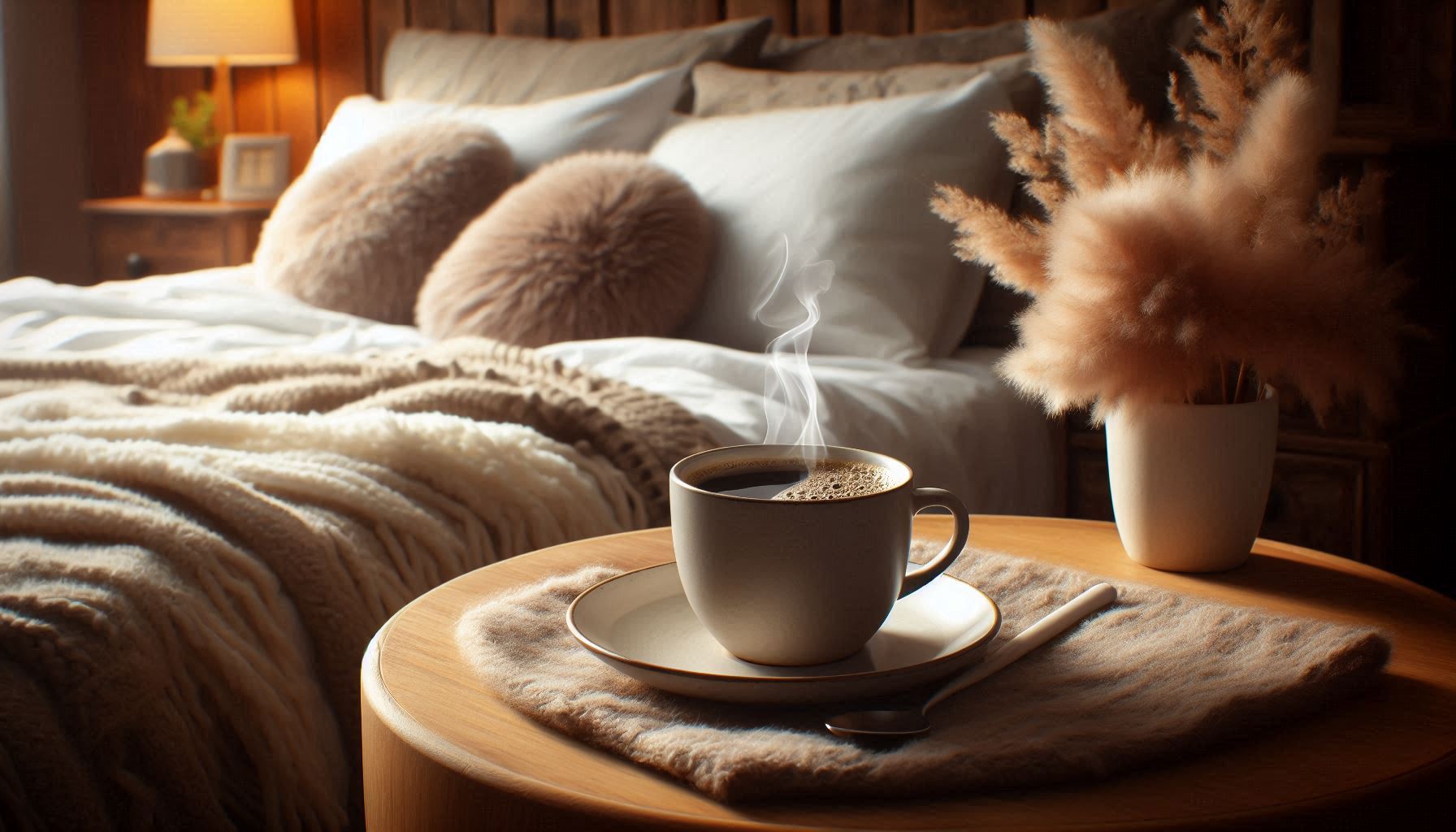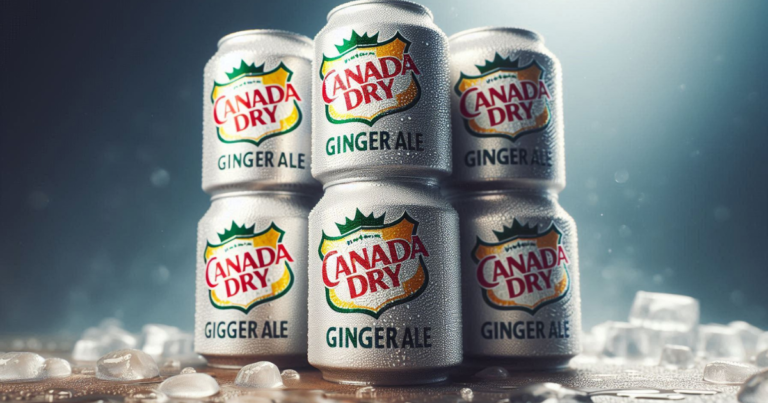Does decaf coffee keep you awake? Myths vs. Facts
Decaf coffee is often seen as a safe alternative for late-night coffee lovers, but does decaf coffee keep you awake? The answer isn’t as straightforward as it seems. While decaf coffee contains significantly less caffeine than regular coffee—typically 2 to 5 milligrams per 8-ounce cup—it can still have a mild stimulating effect on those sensitive to caffeine. Understanding how decaf coffee might influence your sleep depends on various factors, such as individual caffeine tolerance and consumption habits.
Does decaf coffee keep you awake
Decaf coffee generally has much less caffeine than regular coffee, but does decaf coffee keep you awake? The answer depends on various factors, including how sensitive you are to caffeine. While decaf coffee contains only a small amount of caffeine—usually 2 to 5 milligrams per 8 ounces—this could still have a mild stimulating effect on some individuals, especially if they are particularly sensitive to caffeine.
Is decaf coffee good for sleep? For most people, decaf coffee is a great choice if you want to avoid the stimulating effects of regular coffee while still enjoying the taste. However, if you drink it close to bedtime, there’s a slight chance that even this small amount of caffeine could interfere with sleep quality or disrupt your sleep patterns.
Does decaf coffee affect sleep quality for everyone? Not necessarily. For people who drink decaf coffee before bed, it’s usually a safer option than regular coffee, but if you find yourself feeling more awake than usual, it could be due to factors like decaf coffee side effects, or other ingredients in your coffee, like sugar or cream, which may impact your energy levels.
To sum it up, while decaf coffee is a caffeine-free coffee alternative that’s better for evening consumption, there’s a slight possibility that it may keep you awake if you’re highly sensitive to caffeine or drink it too close to bedtime.
Is Bai Good for Weight Loss? A Comprehensive Guide
How to Make Less Bitter Coffee: Tips for a Smoother Brew
How does decaf coffee affect sleep
Decaf coffee generally has a much lower caffeine content than regular coffee, but it can still have some effect on sleep, depending on your individual sensitivity to caffeine.
- Minimal Impact on Sleep: Since decaf coffee contains only 2 to 5 milligrams of caffeine per 8-ounce cup (compared to around 95 milligrams in regular coffee), the impact on sleep quality for most people is minimal. For those who are not sensitive to caffeine, drinking decaf coffee, even close to bedtime, is unlikely to affect their ability to fall asleep.
- Potential Sleep Disruption: However, for individuals who are more sensitive to caffeine or have a lower tolerance, even small amounts of caffeine in decaf coffee might slightly disrupt sleep patterns. It may cause difficulty falling asleep or affect the deepness of sleep, especially if consumed right before bed.
- Other Factors Affecting Sleep: Sometimes, the taste and ritual of drinking coffee might make you more alert, even if the caffeine content is minimal. If you’re drinking decaf as part of a larger evening routine, your body might associate the activity with wakefulness, which could impact your ability to wind down.
- Is Decaf Coffee Good for Sleep? For most people, decaf coffee is a better option for evening consumption than regular coffee. It offers the satisfaction of a warm beverage without the risk of significant sleep disturbances. However, if you’re particularly concerned about sleep or are very sensitive to caffeine, it might be worth considering herbal teas or other caffeine-free beverages before bed.
Does decaf coffee have caffeine
Yes, decaf coffee does have caffeine, but the amount is significantly lower compared to regular coffee. The decaffeination process removes about 97% of the caffeine, leaving a small amount behind. Here’s what you should know:
Caffeine Content in Decaf Coffee
- A typical cup of regular coffee contains about 95 mg of caffeine.
- A cup of decaf coffee usually contains about 2-5 mg of caffeine, depending on the brand and brewing method.
Why Does Decaf Coffee Still Have Caffeine?
The decaffeination process cannot completely eliminate all the caffeine. Traces remain due to the natural chemical structure of coffee beans.
Factors That Influence Caffeine in Decaf Coffee
- Type of Coffee Bean: Some beans naturally have higher caffeine content, even after decaffeination.
- Decaffeination Method:
- Swiss Water Process tends to remove the most caffeine.
- Solvent-based methods might leave slightly more caffeine.
- Serving Size: Larger cups of decaf may still deliver more caffeine.
Should You Worry About the Caffeine in Decaf?
For most people, the trace amount of caffeine in decaf coffee is not enough to cause side effects like sleeplessness. However, if you’re very sensitive to caffeine, even decaf might have a mild impact.
Is decaf coffee good for sleep
Yes, decaf coffee can be good for sleep if consumed in moderation. Since decaf coffee contains only trace amounts of caffeine (usually around 2-5 mg per cup), it is far less likely to disrupt your sleep compared to regular coffee. However, there are a few factors to consider:
Why Decaf Coffee is Better for Sleep
- Low Caffeine Content: The minimal caffeine in decaf is unlikely to interfere with your body’s ability to relax or fall asleep.
- Relaxing Habit: For coffee lovers, sipping a warm drink like decaf can be part of a calming nighttime routine without the stimulating effects of regular coffee.
- Alternative to Caffeinated Drinks: If you’re craving coffee late at night, decaf is a safer option than regular coffee, tea, or energy drinks.
When Decaf Coffee May Not Be Good for Sleep
- Caffeine Sensitivity: If you’re highly sensitive to caffeine, even the small amount in decaf could impact your sleep.
- Acidity Issues: Some people find coffee (including decaf) too acidic, which could cause discomfort like heartburn and make it harder to fall asleep.
- Additives: If you add sugar, syrups, or creamers, these might give you a sugar rush or upset your digestion, indirectly affecting sleep quality.
Tips for Drinking Decaf Before Bed
- Choose a high-quality decaf coffee processed with methods like the Swiss Water Process, which tends to remove more caffeine.
- Drink decaf at least an hour before bedtime to avoid any slight stimulation.
- Pair it with relaxing activities, like reading or meditating, to enhance its calming effect.
How much caffeine is in decaf coffee
Decaf coffee contains significantly less caffeine than regular coffee, but it’s not entirely caffeine-free. On average, an 8-ounce (240 ml) cup of decaf coffee has about 2 to 5 milligrams of caffeine, compared to a typical regular coffee, which contains around 95 milligrams per 8 ounces.
The exact amount can vary depending on factors like the brand, brewing method, and coffee bean type. So, while it won’t keep you as alert as regular coffee, decaf still contains a small amount of caffeine that might have a slight effect on your body.
FAQ
Does decaf coffee have any caffeine at all?
Yes, decaf coffee typically contains 2–5 milligrams of caffeine per 8-ounce cup, far less than regular coffee.
Can drinking decaf coffee keep you awake?
For most people, the small amount of caffeine in decaf coffee won’t keep them awake, but those sensitive to caffeine might feel mildly stimulated.
Is decaf coffee completely caffeine-free?
No, decaf coffee is not completely caffeine-free. The decaffeination process removes about 97% of the caffeine, leaving trace amounts.
Is it safe to drink decaf coffee before bed?
Yes, for most people, decaf coffee is safe before bed due to its low caffeine content. However, caffeine-sensitive individuals should avoid it close to bedtime.
Why do some people feel awake after drinking decaf coffee?
It could be due to caffeine sensitivity, added sugars or syrups, or the psychological association of coffee with wakefulness.
How long does the caffeine in decaf coffee stay in your system?
The small amount of caffeine in decaf coffee can stay in your system for up to 6–8 hours but is unlikely to cause significant effects.
Does the method of decaffeination affect caffeine content?
Yes, methods like the Swiss Water Process are more effective at removing caffeine compared to solvent-based methods.
Is decaf coffee better for sleep than regular coffee?
Absolutely. With much lower caffeine levels, decaf coffee is a better choice for evening or nighttime consumption compared to regular coffee.
Can decaf coffee cause insomnia?
It’s rare, but for individuals with extreme caffeine sensitivity, the small amount in decaf could potentially interfere with sleep.
Does decaf coffee affect sleep quality?
For most people, decaf coffee has little to no impact on sleep quality. However, additives like sugar might indirectly affect sleep.
Is it better to switch to herbal tea instead of decaf coffee at night?
If you are extremely caffeine-sensitive, herbal teas like chamomile or peppermint are better alternatives as they are completely caffeine-free.
Can decaf coffee cause acid reflux or heartburn at night?
Yes, decaf coffee can still be acidic, which may cause heartburn or discomfort for some people, potentially disrupting sleep.
What is the best time to drink decaf coffee?
You can enjoy decaf coffee any time, but it’s best to avoid it within an hour of bedtime if you’re sensitive to caffeine.
Does decaf coffee still provide antioxidants?
Yes, decaf coffee retains many of the antioxidants found in regular coffee, offering similar health benefits without high caffeine.
Is decaf coffee suitable for pregnant women?
Yes, decaf coffee is generally considered safe during pregnancy due to its low caffeine content. However, it’s always best to consult a doctor.






